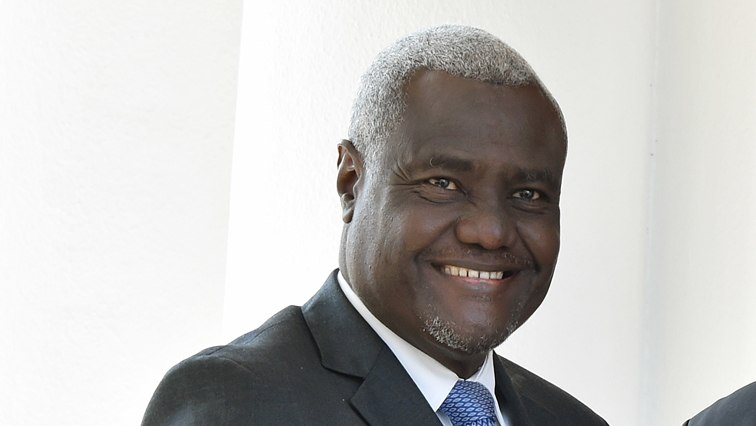African Union Commission Chair Moussa Faki Mahamat has told a virtual meeting of the United Nations Security Council that vaccine protectionism and nationalism were endangering Africa’s social-economic recovery from the COVID-19 pandemic.
Faki Mahamat was speaking during an open debate on addressing the root causes of conflict while promoting post-pandemic recovery in Africa.
He explained that development and security were more closely linked today than ever before and warned that 20 African economies faced a risk of collapse due to high debt burdens exacerbated by the pandemic.
The AU Commission Chair’s sobering remarks sounded the alarm that the economic consequences of the pandemic continue to be acute on a continent that is seeing rising infections and fatalities due in the main to low vaccine availability for the region.
Faki Mahamat says, “Today, the biggest challenge Africa is facing is the vaccine issue. It is a very big mistake to think that the world may be secure while the African continent is still lacking protection against the virus and its variants. We forgot that the world was globalised and that the pandemic is profoundly true. On the political front, there have been challenges in sustaining the necessary processes for implementing transition and peace agreements on the ground to prevent the collapse of African nations.”
Peacekeeping
There are currently six UN peacekeeping missions in Africa in addition to political missions that support peacebuilding and development in a region prone to political instability and conflict.
Coupled with that are the economic impacts of the pandemic – slow economic growth, low levels of international trade and demand for Africa’s primary exports while rising external debt and inflation have left Africa in a precarious position.
‘Burden of debt’
Massive job losses in the region could lead to future unrest and instability.
“20 African countries are facing the risk of collapse because of the burden of debt. This will require new thinking and initiatives and a post-pandemic recovery. I would like to stress that an economic recovery strategy focuses more on the economic stimulus and debt restructuring and not austerity.
“The global travel bans and the national lockdowns have generated a socio-economic crisis that has led to the destruction of economies and affected both the formal and informal employment sectors, leading to massive job losses, rising inflation and a real deterioration in living standards,” explains the AU Chair.
Of the 1.4 billion vaccine doses administered around the world to date, only 24 million have reached Africa representing less than 2% – directly impacting economic recovery as evidenced in countries with broader vaccine access.
COVID-19 vaccine protectionism, nationalism endanger Africa’s social-economic recovery:
‘Global effort on vaccines’
UN Secretary General Antonio Guterres says, “The United Nations is advocating everywhere for the coordinated global effort on vaccines, and for the measures to alleviate the debt burden that threatens to cripple the recovery in many low-and middle – income developing countries, and particularly in Africa…”
“I welcome the record allocation of Special Drawing Rights by the International Monetary Fund (IMF). This must come with a reallocation so that liquidity reaches countries that are in need and avoid additional problems. I also commend the extension of the G20’s Debt Service Suspension Initiative and the Common Framework for Debt Treatment. But eligibility must be expanded to all vulnerable developing countries, including middle-income countries, which still borrow at premium rates and risk debt distress,” said Guterres.
As calls for the strengthening and reform of the international debt architecture grow louder.
President Ramaphosa lashes out at rich countries for engaging in COVID- 19 vaccine nationalism:






